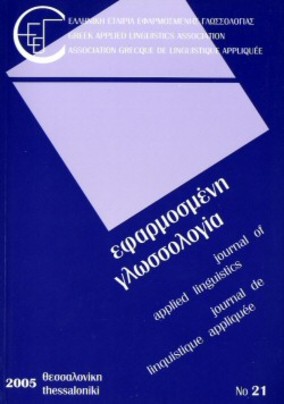Language learning strategy employment of EFL Greek-speaking learners in junior high school
Part of : Εφαρμοσμένη γλωσσολογία ; No.25, 2009, pages 85-106
Issue:
Pages:
85-106
Author:
Abstract:
In the past thirty years the area of language learning strategies has witnessed prolific growth both in theory and research towards the students’ involvement in decision-making for maximizing their achievement. This research is a follow-up to a study for a doctoral thesis with EFL Greek-speaking young learners. The aim is to further provide learning strategy profiles of EFL students in the Greek junior high school in relation to their language proficiency level, gender, and motivation to learn English with pedagogical implications for their teaching. In fact, all language proficiency levels of the Common European Framework of Reference for Languages (CEFR) by the Council of Europe (2001) were found and examined in relation to strategy use. The study was conducted with 785 fifteen-year-old participants in the third grade in junior high schools in the city of Thessaloniki. The data analysis confirms the metacognitive awareness of the students as far as their English learning is concerned. Motivation to learn English appears to be the most influential factor upon employment of strategies; the relationship between strategies and proficiency level is substantiated and significant gender differentiations are presented.
Subject (LC):
Notes:
Περιέχει πίνακες, σημειώσεις και βιβλιογραφία




